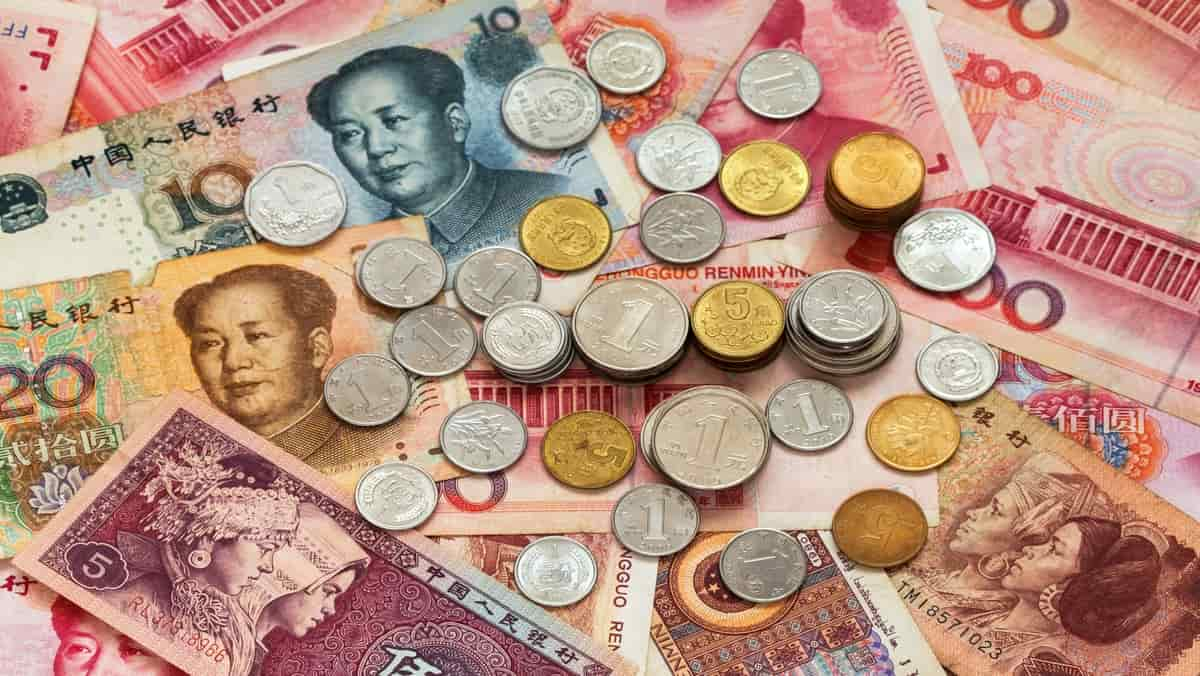Thursday Aug 29 2024 07:01

5 min

Another strong signal for a Fed rate cut: the latest discount rate meeting minutes released on the Federal Reserve's official website indicate that the Fed will definitely cut rates in September.
As the Federal Reserve is set to begin its first rate cut in four years, expectations for the appreciation of the Chinese yuan are growing stronger.
Stephen Jen, the well-known proponent of the "Dollar Smile Theory," recently stated that the narrowing interest rate gap between China and the U.S. could potentially stimulate the return of $1 trillion (approximately 7.1 trillion yuan) in "conservative" funds to China, which could lead to a 10% appreciation of the yuan.
On August 28, the U.S. Dollar Index fell by 0.3%, dropping to an intraday low of 100.51, the lowest since July last year, and closing at 100.55. The dollar declined 3.2% in August.
First, market expectations for a Federal Reserve rate cut have intensified. With the trend of U.S. inflation data declining and increasing downward pressure on the U.S. economy, the Fed's monetary policy stance has shifted to a more "dovish" approach. International financial institutions such as Citigroup and Goldman Sachs have adjusted their expectations for the scale and frequency of rate cuts by the Fed this year.
Second, concerns about a U.S. economic recession have grown. Recent U.S. economic data indicates a noticeable slowdown in growth momentum, with indicators such as the unemployment rate, consumer confidence index, and PMI (Purchasing Managers' Index) all facing varying degrees of pressure.
On August 27, Eastern Time, the latest discount rate meeting minutes released on the Federal Reserve's official website showed that the board members of the Chicago Fed and New York Fed had voted in favor of lowering the discount rate by 25 basis points as early as July.
According to a report by Securities Times China, the meeting minutes provided insights into the possible direction of the Federal Reserve's monetary policy. The current market expectation is that the Fed will definitely cut rates in September, with some even speculating a possibility of a significant 50-basis-point cut.
Recent survey results from the Dallas, Richmond, and Philadelphia Federal Reserve banks have sent warning signals: Americans are beginning to worry that a recession is about to hit the U.S. economy.
According to a report by Securities Times China, Stephen Jen, CEO of the UK hedge fund Eurizon SLJ Capital, former Global Head of Currency Research at Morgan Stanley, and proponent of the well-known "Dollar Smile Theory," recently stated that currency poses the greatest current risk, yet it is not being priced properly by the market. He believes the Chinese yuan could play an important role. When the Federal Reserve cuts interest rates, the narrowing interest rate gap between China and the U.S. could stimulate the return of $1 trillion (approximately 7.1 trillion yuan) in "conservative" funds to China, potentially leading to a 10% appreciation of the yuan.
Jen noted that the yuan is likely to appreciate and that such an appreciation could be allowed. A 5%–10% rise is moderate and acceptable for China. In recent years, Chinese companies may have accumulated more than $2 trillion in overseas investments, as these assets offer higher interest rates compared to yuan-denominated assets
Market analysts believe that as the interest rate gap between China and the U.S. narrows, the return on yuan-denominated assets compared to dollar-denominated assets is becoming more favorable. This trend extends beyond the bond market to other financial assets denominated in yuan. Higher returns have attracted significant international capital inflows into the Chinese market, further supporting the yuan's value.
Recent data from the State Administration of Foreign Exchange revealed that in July, foreign-related income through banks on behalf of clients rose by 9% month-on-month, while expenditures increased by 7%. The income-expenditure deficit narrowed by 41% month-on-month. China's foreign trade continued to grow rapidly, driving a 48% month-on-month increase in net cross-border capital inflows under goods trade, the highest level for the same period in history. Foreign investors increased their net holdings of domestic bonds by $20 billion, a 1.4-fold increase from the previous month, showing strong interest in yuan-denominated assets.
Additionally, according to CCTV, data released by SWIFT on August 22 showed that in July, the yuan maintained its position as the fourth most active currency globally in terms of payment value, accounting for 4.74%, following the U.S. dollar, euro, and British pound. Compared to June 2024, yuan payment volumes increased by 13.37%, while total payment volumes for all currencies rose by 10.29%.
This marks the ninth consecutive month that the yuan has held the position of the fourth most active global currency.
When considering shares, indices, forex (foreign exchange) and commodities for trading and price predictions, remember that trading CFDs involves a significant degree of risk and could result in capital loss.
Past performance is not indicative of any future results. This information is provided for informative purposes only and should not be construed to be investment advice.
Asset List
View Full ListLatest
View all
Monday, 31 March 2025

5 min

Monday, 31 March 2025

5 min

Monday, 31 March 2025

5 min